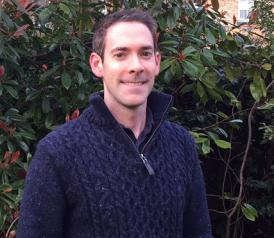Resilience – the tool of the Management Consultant; often faced with situations characterised by ambiguity, competing priorities and even hostility…

21st November 2025: Please note that our website is now "frozen", preparing for migration in December.
All our content can be read as normal. Events can continue to be booked as usual.
If you have any queries, please email us at
webadmin@wcomc.org. Thank you
Uniquely personal domestic experience can provide good practice in developing Resilience....!
As consultants and business advisors, we’re often familiar with ambiguous and variable situations. Typically, we’re asked to make our best performances during periods of change; situations therefore that benefit from prior experience, insight and resilience. Through study and years of practice, one can gain experience and insight – but how does one ‘learn’ to be resilient?
The good news is that resilience is merely a mindset in reaction to a situation. We have the choice to be resilient if we want to be. A resilient mindset is flexible, self-aware and confident – it reacts positively to challenging situations, especially those situations that have been dealt with previously. Being resilient can enhance our performance and helps us to guide our clients through even the most uncertain of challenges.
Here are some good habits to ensure you’re as resilient as you can be, both in your professional and personal lives:
- Embrace stress – Resilient people don’t feel out of control, but embrace it, knowing that these feelings arise because it is something they care about
- Look forwards, not backwards – Don’t cry over spilt milk but visualise what you’d like the outcome to be
- Don’t blame yourself – See setbacks as temporary situations and not as a permanent reflection of yourself
- Embrace failure – Thomas Edison found 1,000 ways that didn’t work…
- Have choice – Resilient people always believe they have choice, so look out for other options in every situation
- Practice grey thinking – Not everything is black and white. Solution oriented thinking allows for different options outside of the narrow minded ‘one or the other’ scenario.
A recent scenario of mine included all of the typical traits we’ve come to accept in our profession: getting up early; going to bed late; being faced with unknowns; dealing with strained and tired people; getting your hands dirty; having to deprioritise other activities. It required me to observe all the habits listed out above; except on this occasion, it wasn’t in a consulting capacity as you’d perhaps be expecting – I’m talking about learning the ropes as a first-time father on my paternity leave. A year on, my son, wife and I are infinitely more resilient…..! :))
Steve Huntley, Freeman

